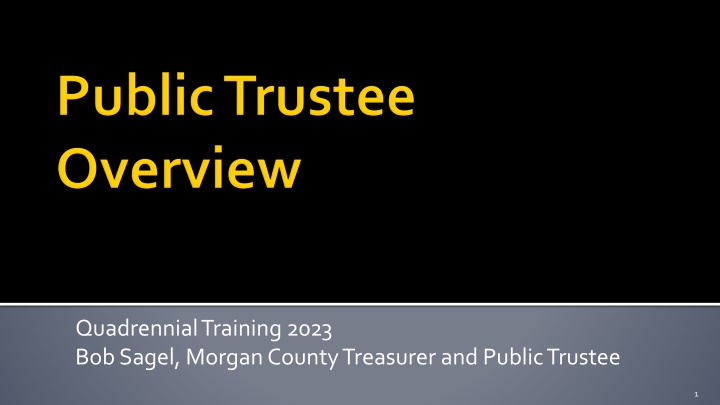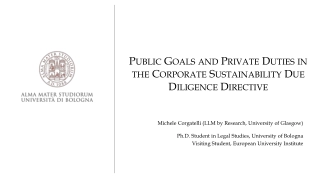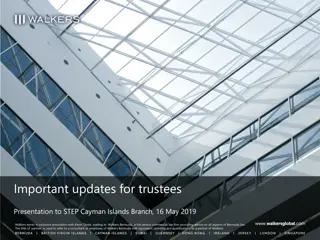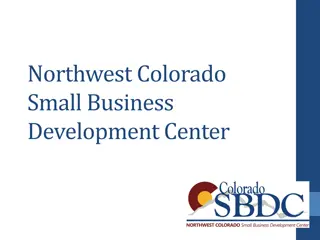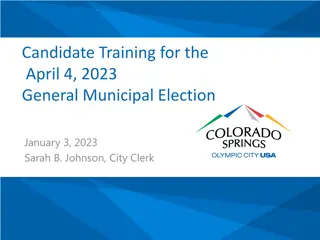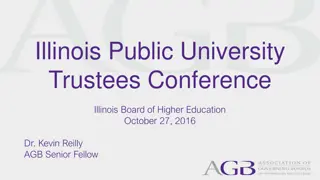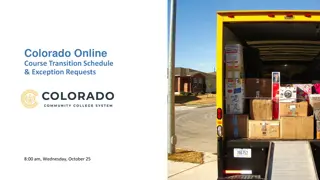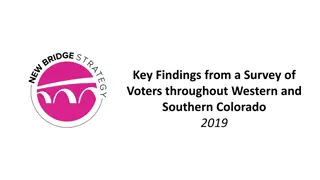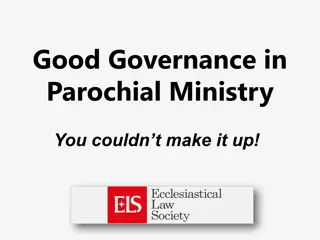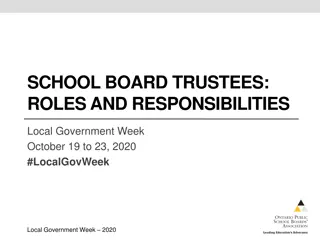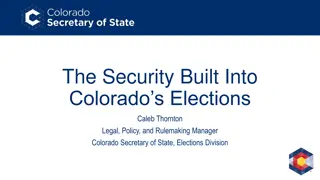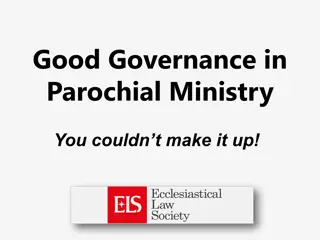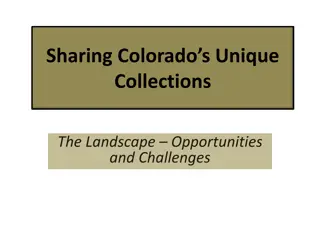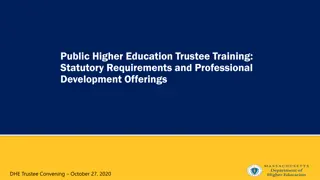Public Trustees in Colorado: History and Duties
Colorado is the only state in the nation with public trustees, established to protect individuals from financial injustices. This system was created in response to the 1893 silver mine closures, with public trustees appointed to oversee property matters. Public trustees in Colorado handle vital duties such as releasing deeds of trust and managing foreclosures impartially, ensuring legal procedures are followed accurately.
Download Presentation

Please find below an Image/Link to download the presentation.
The content on the website is provided AS IS for your information and personal use only. It may not be sold, licensed, or shared on other websites without obtaining consent from the author.If you encounter any issues during the download, it is possible that the publisher has removed the file from their server.
You are allowed to download the files provided on this website for personal or commercial use, subject to the condition that they are used lawfully. All files are the property of their respective owners.
The content on the website is provided AS IS for your information and personal use only. It may not be sold, licensed, or shared on other websites without obtaining consent from the author.
E N D
Presentation Transcript
Quadrennial Training 2023 Bob Sagel, Morgan County Treasurer and Public Trustee 1
Public Trustee History Operations of the Public Trustee Public Trustee Duties Public Trustee Budget Public Trustee as Escrow Agent 2
On March 5, 1894 Davis H. Waite, Governor of Colorado, signed House Bill No. 48 into law establishing the public trustee system. This act came about to remedy a number of abuses for people being unjustly and illegally attacked due to the closing of the silver mines in 1893, with miners and other business interests losing homes and businesses. Public Trustees in Class 1 and Class 2 counties were initially appointed by the Colorado Supreme Court and later by the Governor. Today in all counties other than Denver and Broomfield the County Treasurer serves as Public Trustee. 3
Colorado is the ONLY state in the nation that has PUBLIC TRUSTEES. Other states have PRIVATE trustees representing lenders or foreclosures are handled through the courts. In lieu of the bond required in 38-37-102 (1)&(2), a county may purchase crime insurance coverage on behalf of the public trustee to protect the people of the county from any malfeasance on the part of the public trustee or their employees. 4
Each Public Trustee may appoint deputies who shall have the same power as the public trustee. The Public Trustee is accountable to the Board of County Commissioners through quarterly financial reports. A Public Trustee s office is fee-funded so the Public Trustee s salary shall be paid only from the fees collected. If the Public Trustee fails to meet the time requirements set forth in 38-38-102, 103, or 501, they will forfeit a 5% fee for each day late. 5
Most real estate transactions in Colorado involve a Deed of Trust. There are three parties named in a Deed of Trust: The Lender, the Borrower, and the Public Trustee. A Public Trustee s two basic duties deal with Deeds of Trust. 1. Releasing the Deed of Trust 2. Administering the foreclosure process in the event of a default The Public Trustee serves as an impartial third party in foreclosure proceedings ensuring that all statutory proceedings and protections are followed correctly 6
1. Receipt of a Request for Release of DOT signed by the Current Holder of the Evidence of Debt accompanied by the DOT and evidence of debt (note), if needed. 2. Verify the information on the Request against the recorded DOT: dates, recording info, names, correct county. 3. Ensure that the correct form has been presented: With or Without the Evidence of Debt (with the correct box checked). Check if it is a Full Release or a Partial Release. 4. Receipt of the fee including recording. 7
1. Receipt of foreclosure file from Attorney representing the Holder of the Evidence of debt. 2. Verify that proper documents are filed. Proof all of the documents. 3. Create a Foreclosure file, assign a Foreclosure Sale number, and determine the mailing, publication, and sale dates. 4. Record the Notice of Election of Demand for Sale 8
5. Create and mail Combined Notices and then notify the attorney or holder that the foreclosure has started. 6. Account for fees and costs. 7. Process second mailing of Combined Notices 45 60 days prior to the sale date. 8. Publish the Combined Notice 45 60 days prior to the sale date. 9. Receive the written bid and the Order Authorizing Sale by noon two business days before sale. 9
10. On the Sale Day, read or distribute the sale information and hold the auction. Declare the property sold to the highest bidder. (May hold online auctions.) 11. Create and record the Certificate of Purchase with the Order Authorizing Sale and all mailing lists attached. 12. Notify the Attorney of the sale results. 10
13. Prepare and record the Confirmation Deed 10 to 15 business days after title vests. Assignments are due within ten business days after title vests. Receipt of written notice that the Certificate will not be assigned may allow the deed to be issued after title vests prior to the 10th business day. 14. Close the file. 11
There are several things that can affect the Foreclosure Cures of Default Withdrawals of NEDs Loss Mitigation Rescissions Redemptions Bankruptcy Overbids 12
Escrow Agent A Public Trustee shall also be designated as escrow agent for property tax obligations on contracts for deeds to real estate but the Public Trustee may designate an alternate to act as the escrow agent. Obtain a copy of the recorded contract, collect the fee in advance, and set up a separate bank account. If the purchaser does not comply with Statutes, the Public Trustee may terminate the account and return the money. 13
Successor Trustee Upon the death of the last survivor of directors of a dissolved corporation, the Public Trustee shall have full power and authority to act on behalf of and in the name of such corporation to convey and dispose of such property. Only applies to for-profit corporations dissolved before 7/1/94 Only applies to not-for-profit corporations dissolved before 7/1/98 14
38-37-104(6) The public trustee shall adopt a budget pursuant to 29-1-101 et.seq. and submit the budget to their BCC for review (unless included in the County Budget) Propose the budget and submit it to the Budget Officer. Prepare a written Budget message and publish or post a notice of the hearing. Hold Public Hearing and consider objections, revise if needed and by Resolution adopt the budget. File a certified copy of the budget with DOLA no later that 30 days following the beginning of the fiscal year. 15
1430 Wynkoop St., Suite 300 Denver, Colorado 80202 (303)605-1579 dstodden@messner.com 16
